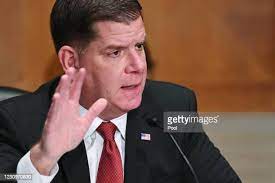Nebraska law can be friendly towards weather-related injury and weather-safety whistleblower claims, but workers should expect extra scrutiny from courts on these types of claims.
Nebraskans started experiencing their first heat wave of the summer this weekend. Most of the state will see temperatures at or near 100 degrees Fahrenheit early next week. Nebraska workers face a mixed bag of news when it comes to state and federal workplace safety laws when it comes to heat.
Good news: Positional risk doctrine and weather-related work injuries in Nebraska.
In Nebraska, a worker who is injured as a result of extreme weather should be able to collect workers’ compensation because the state has adopted the positional-risk test – at least when it comes to tornados. Positional risk means that if you are injured at work because of a general or neutral risk like weather at work, then you can collect workers’ compensation for your injury. Not all states have adopted this rule which makes it harder for those workers to collect workers compensation for heat-related injuries.
Bad news: Heightened causation for heat-related heart attacks in Nebraska
One common heat-related injury is a heart attack. But heart attacks have a more difficult causation standard that typical work injuries in Nebraska. Nebraska typically has what is called contributing factor causation which means that a work injury or working conditions can combine with other personal factors and still be covered by workers’ compensation. But with a heart attack, an employee has to show that work substantially increased the risk of the heart attack. It’s not an impossible standard, to meet but at the very least it can give an insurer/employer the ability to initially deny a heat-related heart attack claim.
Good news: USDOL is pushing a heat standard
In contrast to the Obama administration, the Biden DOL is moving forward with a rule for heat exposure on the job. This is important because OSHA is more likely to sanction employers if they are violating a specific rule rather than the so-called General duty clause.
Bad news: It could take up to 10 years to enact a specific OSHA heat rule
Reporter Mike Elk of Payday Report and former OSHA official turned blogger Jordan Barab have done great writing and reporting about the delays in enacting workplace safety rules through OSHA. In regards to the heat rule, if everything goes right then a heat rule may get enacted sometime in 2027 or 2028. This is likely assuming a second Biden term or that Biden is succeeded by a Democrat in 2025. This isn’t a political blog per se, but those are big assumptions at this point.
Good news/Bad News: Private enforcement via whistleblower laws
However employees who believe that their employer is creating unsafe conditions related to heat can still call OSHA. From my experience, OSHA is more likely to take action if employees are willing to forgo anonymity in their complaint. Forgoing anonymity when making a complaint can also make it easier for an employee to succeed in a retaliation case.
While a general complaint about unsafe working conditions doesn’t always give you a right to sue your employer, employees in certain industries can ask for administrative hearings in retaliation cases. Further, Nebraska has a general whistleblower law that allows employees to sue employers in state court over retaliation.
Again, these cases are stronger if an employee is willing to call OSHA and forgo anonymity. State and federal judges have enacted many hurdles in retaliation cases that make it harder for employees to win these claims. I think part of the reason why judges have thrown up hurdles in retaliation cases is because most employees are reluctant to report misconduct to a government agency and want anonymity when they do. Bluntly, it seems like courts are adopting the “I’m the m-fer who called OSHA!” test for what constitutes a protected activity in a retaliation case.


